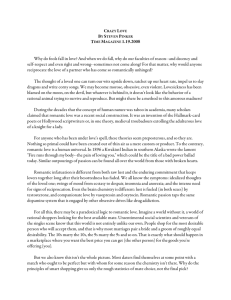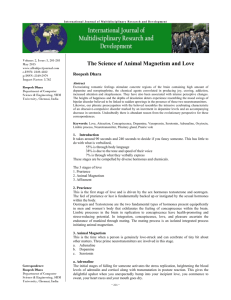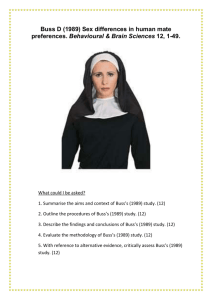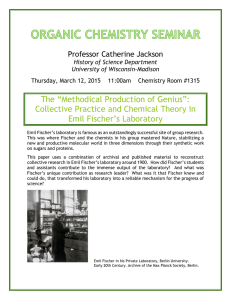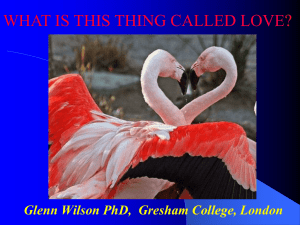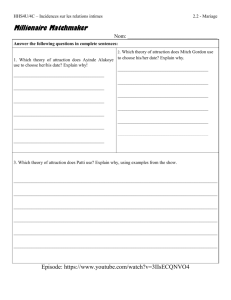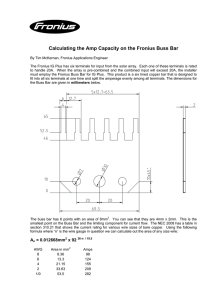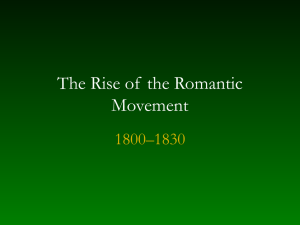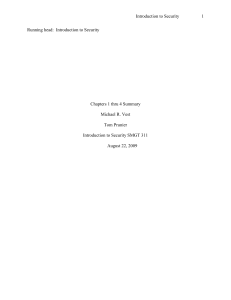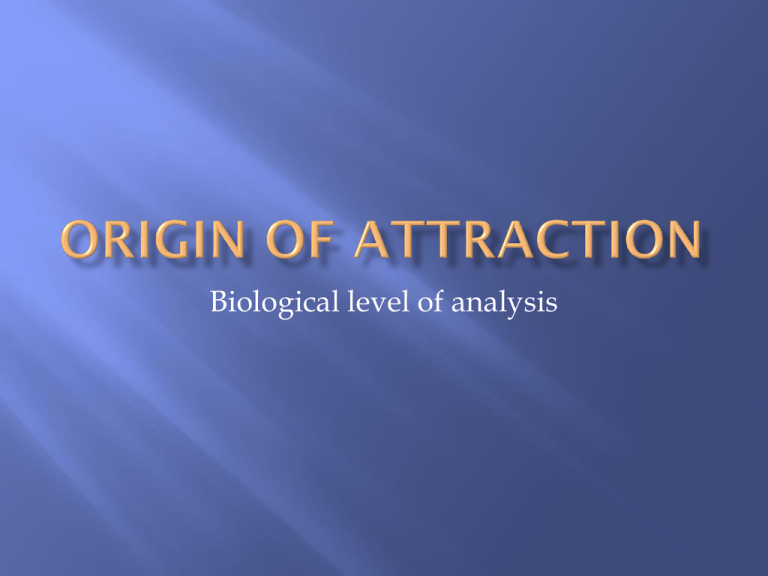
Biological level of analysis
Animals and humans share a lot of similar
behaviour when attracted to each other
Evolutionary theories argue that the purpose is
to procreate – pass on ones genes!
In the animal kingdom it is common that the
males fight
over the females
The result of a biomedical cocktail
according to Fischer (2004) who argues that
the symptoms exhibited in human romantic
passion indicate that dopamine, adrenaline,
and serotonin all play an important role.
Fischer argues that love is not an emotion, but
a motivation system – designed to enable us to
mate (much like other animals)
Adrenaline: makes your heart race, your palms
become sweaty… (stress hormone) high energy,
less need of sleep and food and more focused
attention on the potential mate
Serotonin: a neurotransmitter that may be
involved in love – not possible to document the
exact role in romantic love though
Fischer et al 2003 – used fMRI to investigate the
blood flow in 20 men and women to compare brain
activity and it was more active in the brain’s
reward system when watching their beloved ones
Modern research has discovered that two
hormones help to increase the bond between
lovers
Adult attachment – hormones oxytocin and
vasopressin
Oxytocin – released in men and women during
touching and sex
Also during childbirth – could explain the
“strong” bond between mother and child, or at
least secure it – experiments done on rats
which confirmed these findings
Another important hormone for long-term
commitment
Also released during sex
Animals that have more sex than necessary
(humans) prairie voles
for example,
test to suppress
the effect of vasopressin
What happened?
Jealousy, David Buss - may be biologically based –
to optimize the potential for reproduction
Low (1990) – correlation between parasites and the
degree of polygyny –higher the higher
Another Buss study analysed facial characteristics
such as high cheekbones, masculine chin
(symmetrical facial features or not)
Read the dirty shirt study by Wedekind 1995 and
summarize it with one paragraph
Relates to perception and social cognition
If we perceive another person as similar to
oneself –could be the explanation behind the
attraction
Opposites attract – false! Couples tend to be
similar in age, religion, social class, cultural
background, personality, education,
intelligence, physical attractiveness, attitudes…
Write down:
Describe the psychological characteristics,
values, and attitudes of your ideal romantic
partner, without thinking of anyone in
particular
No, write down:
Describe yourself
Shared interests and also the other person’s
support for one’s own views and attitudes
(rewarding)
Markey et al (2000) investigated to which
similarity is a factor in the way people choose
partners.
A large sample of young people
Asked to describe their ideal partner
Then to describe themselves
Results?
Results showed similar results –
A follow up study with couples showed the
same
Though only on Americans
Higher the match – influence how the
relationship progress
Do Research in psychology and answer the
questions 1-4 on p. 277 for tomorrow
Sociocultural level of analysis
Similarity also has do with same social and
cultural norms
How contact and interaction take place makes a
difference/ or influence
Frequency of interacting is a good prediction of
liking and also if one lived close (dormitories,
elderly homes, campuses, work, school…right
Anna?)
Interaction provide us with connectedness and
attachment and this is a human need,
Zajonc – the mere exposure effect
Love – a different meaning in different cultures
Marriage – comes after love or before?
Depends on the culture
Buss (1994) largest cross-cultural studies on
relationships – 10 000 from 37 cultures
Some aspects were similar – such as sex, but a lot
were different such as where they ranked “love”

